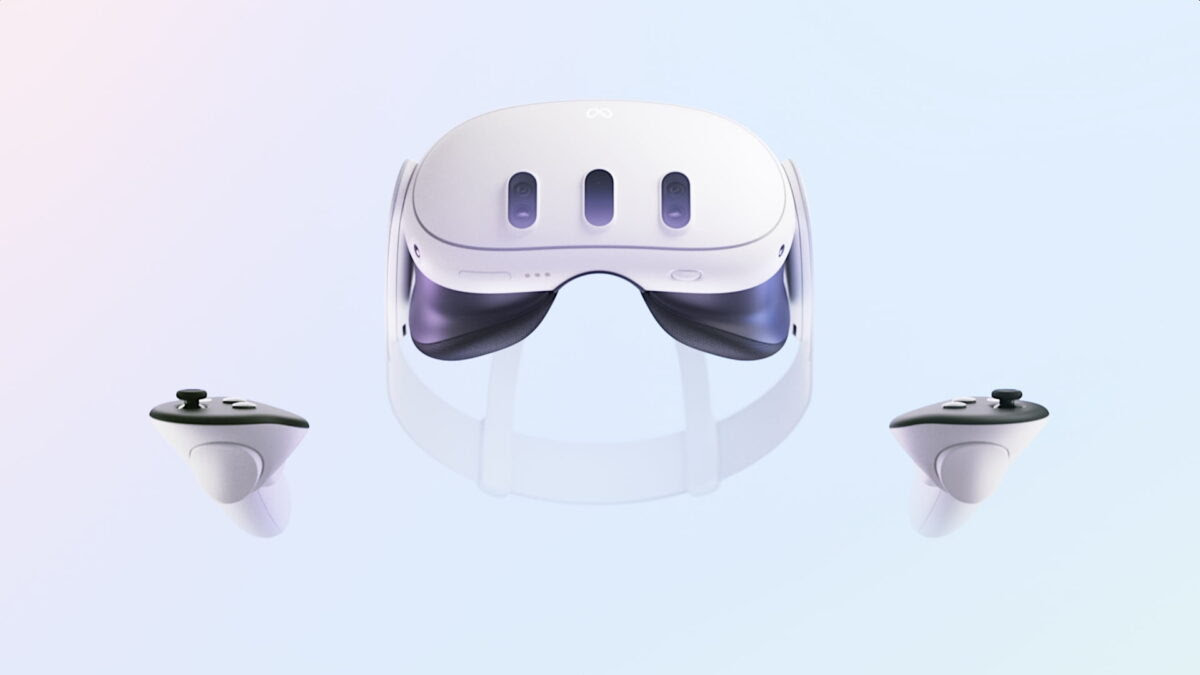The US Federal Communications Commission (FCC) has granted approval for the upcoming Quest 3 headset.
The FCC serves as the regulatory agency responsible for overseeing wireless frequency usage in the US market. The approval from the FCC is a necessary step for selling any device with wireless capabilities in the country.
Although the official documents do not explicitly mention ‘Quest 3’, the filing clearly depicts the headset’s strap arm with a new curved speaker, located in the same position as the regulatory information label of Quest 2.
Recently, the new Touch Plus controllers of Quest 3 also received FCC approval, revealing that each controller requires one AA battery, similar to Meta’s previous VR controllers except the rechargeable Touch Pro.
Additionally, the FCC filings disclose that Quest 3 supports the 6GHz band introduced in Wi-Fi 6E, in addition to the standard 2.4GHz and 5GHz bands. Quest 3 will be the third consumer headset to support the 6GHz band, following Vive XR Elite and Quest Pro.
The inclusion of the 6GHz band allows for increased bandwidth and reduced interference from other devices, making it suitable for wireless PC streaming when the router or access point is in close proximity to the headset. However, the signal degrades more when passing through solid objects and has a shorter range.
Although Meta has not yet confirmed specific details such as resolution, refresh rate, RAM, or higher storage tier, an early Best Buy listing may have revealed the resolution.
Officially, Meta has stated that the visor of Quest 3 is 40% thinner due to pancake lenses, the GPU is over twice as powerful, and it includes dual color cameras and a depth sensor for mixed reality with scene understanding. The base model will offer 128GB storage and will be priced at $500.
While the exact launch date of Quest 3 remains undisclosed, Meta typically unveils new products at its yearly Connect conference, scheduled this year for September 27.
